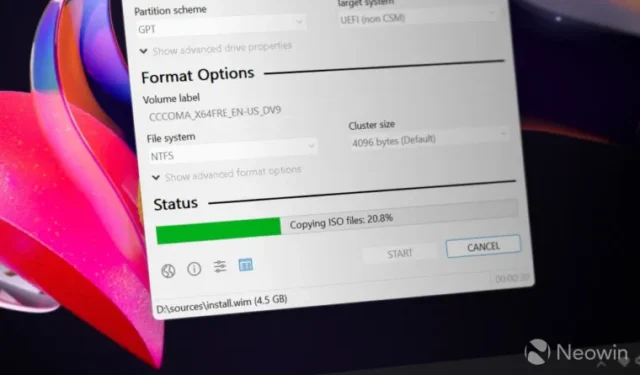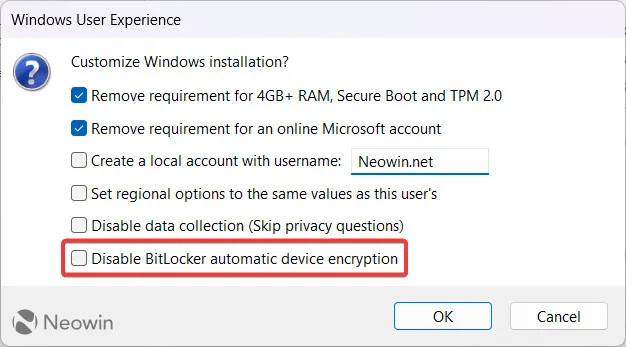Rufus 3.22 Beta includes a new choice to disable BitLocker and does away with ISO downloads on Windows 7.

A new preview version of Rufus, a popular program for making installation disks for Windows (or other operating systems), has recently been released. There have been a number of significant adjustments and enhancements made, which can now be found in Version 3.22, which is now available for download from GitHub.
With version 3.22 of Rufus, an option has been added to the Windows User Experience dialog to deactivate the automatic BitLocker encryption feature. This functionality joins numerous other choices that already exist to provide you the ability to tailor the Windows 11 installation disk. These options include deleting requirements for 4 GB of RAM, Secure Boot, TPM, and an online Microsoft account.

Additional improvements have been made to Rufus 3.22 Beta, such as the capability to preserve logs between sessions and acceleration for SHA-1 and SHA-256 on x86 CPUs that are supported. Unfortunately, starting with version 3.22 of Rufus, users of Windows 7 may no longer use the application to download ISO files.
The following is a comprehensive changelog for the Rufus 3.22 Beta version:
- Add SHA-1 and SHA-256 x86 acceleration on CPUs that support it
- Add an option to disable BitLocker device encryption in the Windows User Experience dialog
- Add a cheat mode (Ctrl-P) to preserve the log between sessions
- Fix potential media creation errors by forcing the unmount of stale. wim images
- Fix potential access errors in ISO → ESP mode by forcing Large FAT32 formatting
- Fix user-specified label not being preserved on error/cancel
- Fix some large SSD devices being listed by default
- Fix processing of Rock Ridge CE fields
- Work around the use of Rock Ridge symbolic links for Linux firmware packages (Debian)
- Remove the ISO download feature on Windows 7
You can download Rufus 3.22 Beta from the app’s GitHub repository (via Deskmodder).
Source: NeoWin


Leave a Reply